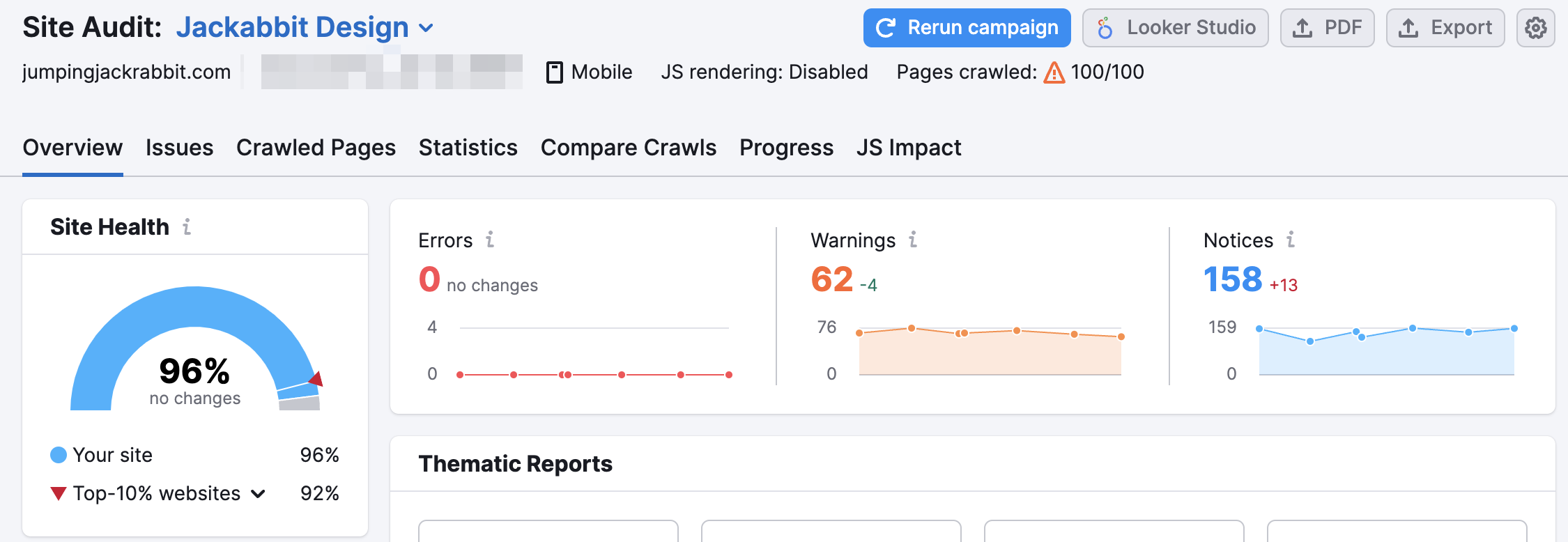In today’s competitive digital landscape, search engine optimization (SEO), search engine marketing (SEM), and paid social media have become paramount for businesses looking to stand out and achieve their marketing goals.
In this blog post, we’ll delve into the differences between each, outline best practices, and introduce SEMRush as a powerful tool for marketers.
Understanding the Differences Between SEO, SEM, and Paid Social Media
SEO, SEM, and paid social media are distinct yet complementary strategies businesses can leverage to enhance their online presence and effectively reach their target audience.
SEO (SEARCH ENGINE OPTIMIZATION)
SEO involves optimizing your website to improve its visibility in organic search engine results. It focuses on tactics such as keyword research, content optimization, and link building to attract relevant traffic over time.
SEM (SEARCH ENGINE MARKETING)
SEM encompasses paid advertising strategies to increase visibility in search engine results. It includes PPC (Pay-Per-Click) advertising, keyword research, ad copy optimization, and bid management for immediate visibility and conversions.
PAID SOCIAL MEDIA
Paid social media involves promoting branded content or ads on social media platforms to reach a targeted audience. It allows businesses to amplify their reach, engage with potential customers, and drive specific actions such as website visits or conversions.
Best Practices for SEO, SEM, and Paid Social Media
SEO BEST PRACTICES
SEO may seem like a lofty endeavor, but there are simple things you can implement (title tags, meta descriptions, etc.) that can help move the needle on your website’s Google ranking.
- Optimize title tags, meta descriptions, and headers (H1, H2, H3, etc.) for improved visibility.
- Conduct keyword research to identify relevant terms and topics. We will cover more on this in a bit!
- Regularly publish high-quality, informative, and relevant content to attract organic traffic.
- Build high-quality backlinks from reputable websites to increase online authority.
SEM BEST PRACTICES
Effective SEM campaigns begin with thorough keyword research to identify relevant search terms with high commercial intent. For most clients, we use Google Ads as our main tool to deploy search and display ads, and SEMRush for keyword research.
- Conduct thorough keyword research to identify high-commercial-intent search terms.
- Optimize ad copy and landing pages for better ad relevance and performance.
- Implement bid management strategies to maximize ROI and ad placement.
- Track and analyze conversion metrics to measure campaign effectiveness.
PAID SOCIAL MEDIA BEST PRACTICES
Paid social media campaigns require strategic targeting, engaging creative, and compelling messaging to resonate with the audience.
- Define clear campaign objectives and target audience segments.
- Develop engaging creatives and compelling messaging tailored to the platform (whether you want to advertise on Facebook, X, Instagram, or LinkedIn).
- Utilize audience segmentation to reach specific demographics and interests.
- Conduct A/B testing to optimize ad creatives, targeting, and messaging for better performance.
WHAT EXACTLY IS A/B TESTING?
A/B testing is a method of comparing the results between two different pieces of content. In the case of paid social media, it involves comparing two versions of a post to see which gets the best engagement from your target audience.
The example below maintains the same design and layout but tests two unique headlines.
SEMRush Tools and Reporting
SEMRush is a comprehensive digital marketing toolkit that provides valuable insights and tools for SEO, SEM, and paid social media. Its features include keyword research, competitor analysis, site audit, PPC analysis, and social media management.
By leveraging SEMRush, marketers can gain competitive intelligence, identify opportunities for optimization, and track campaign performance across multiple channels.
Here are some examples of these tools:
SEO REPORTS

- Keyword Research: SEMRush offers detailed keyword research reports, providing insights into search volume, competition level, and keyword variations. Marketers can discover new keyword opportunities and prioritize their SEO efforts based on relevant search terms.
- Competitor Analysis: SEMRush’s competitor analysis reports allow marketers to compare their website’s performance with competitors. It can identify competitor keywords, backlink strategies, and content gaps to inform SEO strategy.
- Site Audit: SEMRush conducts comprehensive site audits, identifying technical SEO issues, such as broken links, crawl errors, and duplicate content. Marketers can use these reports to optimize their website’s structure and improve search engine rankings.
- Backlink Analysis: SEMRush provides detailed backlink analysis reports, showing the quantity, quality, and source of backlinks pointing to a website. Marketers can assess their backlink profile, identify toxic links, and strategize link-building efforts for improved SEO.
SEM REPORTS
- PPC Analysis: SEMRush offers PPC analysis reports, providing insights into PPC campaign performance, ad spend, and keyword effectiveness. Marketers can track key metrics such as click-through rate (CTR), cost per click (CPC), and conversion rate to optimize their PPC campaigns for maximum ROI.
- Keyword Tracking: SEMRush allows marketers to track keyword rankings in paid search results. They can monitor keyword performance, identify trends, and adjust bidding strategies to improve ad positioning and visibility.
- Ad Copy Analysis: SEMRush provides ad copy analysis reports, showing the performance of ad headlines, descriptions, and extensions. Marketers can test different ad variations, analyze their impact on click-through rates, and optimize ad copy for better performance.
- Competitor Benchmarking: SEMRush enables marketers to benchmark their PPC performance against competitors. They can compare ad spend, keyword overlap, and ad copy effectiveness to identify areas for improvement and maintain a competitive edge in the paid search landscape.
SOCIAL MEDIA REPORTS
- Social Media Analytics: SEMRush offers social media analytics reports, providing insights into audience demographics, engagement metrics, and content performance across social media platforms. Marketers can track key metrics such as likes, shares, comments, and follower growth to measure the effectiveness of their social media campaigns.
- Competitor Benchmarking: SEMRush allows marketers to benchmark their social media performance against competitors. They can compare follower growth, engagement rates, and content strategies to identify opportunities for improvement and refine their social media strategy.
- Content Analysis: SEMRush provides content analysis reports, showing the performance of social media posts and content types. Marketers can identify top-performing content, analyze audience preferences, and optimize their content strategy for maximum engagement and reach.
Need Help With Your Digital Strategy?
If you’re ready to elevate your online presence and unlock digital success, we invite you to learn more about our website design and development and social media capabilities.
